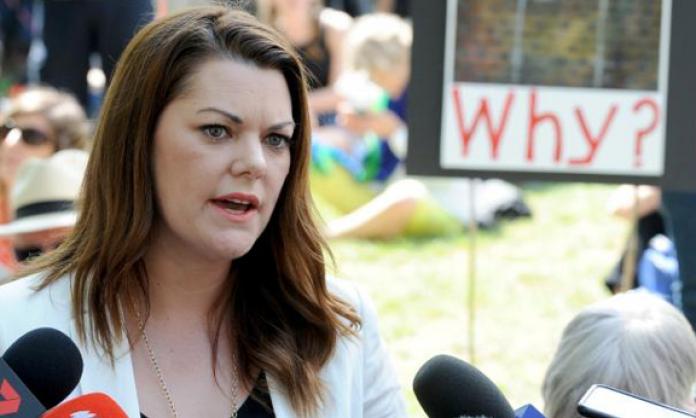The policy that most clearly differentiates the Greens from the Labor and Liberal consensus is their more humane approach to refugees. So Richard Di Natale’s decision in late August to remove Sarah Hanson-Young from the portfolio, against her strident and public objection, is significant.
Hanson-Young has been the party’s immigration spokesperson since 2008. Her outspoken opposition to the inhumane policies of all governments in that period has earned her labels such as “shrill ideologue” and “sanctimonious”.
Even more to her credit, Peter Dutton accused her of “attention seeking” and of being “an embarrassment to our country”. She also gained the attention of Wilson Security officials, who spied on her when she visited Nauru in 2013.
In late August, Hanson-Young was refused a visa to Nauru. At the same time, a group of right wing Danish MPs, who want to replicate Australia’s refugee torture regime, were given permission to visit.
So there’s no surprise that Labor and Liberal governments, and detention centre operators, have been hostile to her.
But why has Greens leader Richard Di Natale dumped her from this high profile portfolio?
Unlike Lee Rhiannon, who was demoted from the education portfolio last year, Hanson-Young has not been on the left of the Greens. Bob Brown has been a strong supporter.
Nor is it because the Greens are about to make an immediate about-face on asylum seeker policy. Di Natale did let slip and then denied twice during the election campaign that offshore processing might be “negotiable” if there was a prospect of forming a coalition government with Labor. But that is clearly not on the agenda now.
Instead, this reshuffle is about the longer term trajectory of the Greens to the right, to positioning themselves as the sort of reasonable and responsible party that can be allowed a role in government, with whatever negotiations on policy that might require.
For this project, it’s not only the NSW left with their socialist and trade unionist pasts that need to be sorted out. Despite being in the Bob Brown camp, nine years of being “tough but divisive” on refugees apparently means Hanson-Young isn’t suitable.
To see why, a brief look at her replacement suffices.
Just a month ago, Nick McKim looked unlikely to get into the Senate, securing the last Tasmanian spot just 141 votes ahead of One Nation. But he has something that no-one else among the parliamentary Greens has: ministerial experience. In other words, he has proven his political flexibility.
In 2010, McKim became a minister in a Greens-Labor coalition government in Tasmania, eventually being responsible for education. On the day of the 2011 Tasmanian budget, he declared: “Just as the Greens supported previous Labor and Liberal minority governments when tough remedial budget action was required, we have rolled up our sleeves to take on a similar responsible role once again … The Greens welcome the move to a new fiscal strategy”.
By 2012, the government was implementing spending cuts of 10 percent that resulted in 1,700 public sector job losses, increased water costs and public housing rents, and $190 million cut from public education and $58 million from elective surgery.
McKim’s record on education shows him to be a perfect candidate for whatever pragmatism the mainstreaming of the Greens may require in the future.





